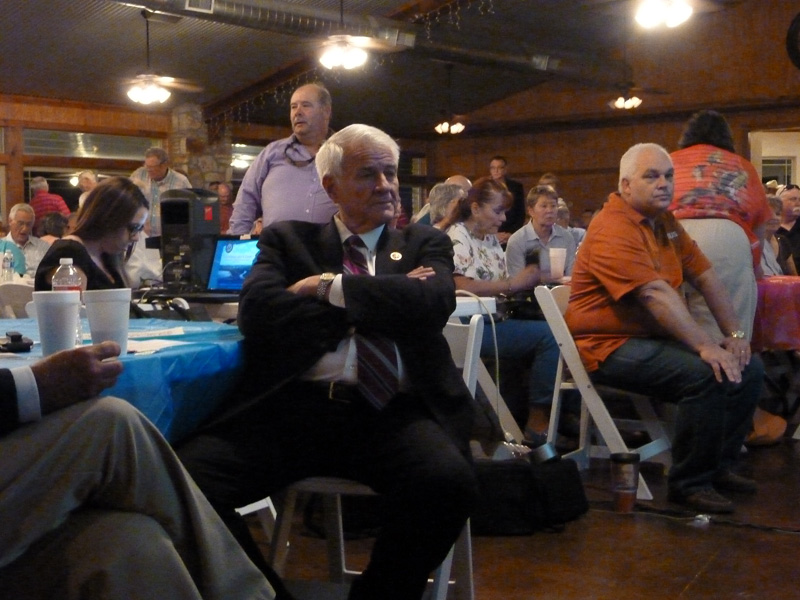
Bowing to Tea Party, Texas Congressmen Wilt on Immigration Reform

Above: Rep. John Carter at a town hall meeting in Salado.
A month after U.S. Rep. John Carter (R-Round Rock) tried to defend his willingness to consider an immigration reform bill to unhappy constituents, his office released a joint statement on Friday with Rep. Sam Johnson (R-Plano) announcing their departure from a bipartisan immigration reform working group, all but signaling the end of a once-promising avenue for reform. Carter and Johnson were the only white Republican members of the ‘Gang of Seven,’ tasked by House leadership with generating a GOP-friendly approach to the issue.
Their departure from the group, coming several months after Idaho Rep. Raul Labrador’s, leaves only one GOP congressman still with the group. But their exit could signify a bigger problem for immigration reform’s chances in the next few months — some Republicans in Congress who represent majority-white and heavily conservative constituencies find themselves unable to compromise on this core issue. At the August town hall meeting, Carter tried to fend off angry constituents, who had earlier screened the documentary They Come to America II: The Cost of Amnesty, by presenting his own immigration reform plan. The crowd was having none of it.
Lynn Woolley, the local radio host who loudly denounced Carter at the Salado town hall, took partial credit for Carter’s reversal, posting congratulatory messages from his fans on his Facebook page.
“CONGRATULATIONS to you and the Central Texas Tea Party!,” Woolley wrote. “I truly believe all of you had a huge influence on John Carter and Sam Johnson.”
Roy Beck, the executive director of NumbersUSA, one of the leading anti-immigration reform pressure groups, likewise touted the gang’s collapse as a victory.
“I think it’s pretty clear that House Speaker Boehner was the one who talked Johnson and Carter into joining this group, in the hope that it would give some conservative cover to passing amnesty,” he said. “We’ve been getting indications for several months that the pressure on these two at home, among their constituents had been approaching a breaking point. They had been looking for an opportunity to get out.”
But a statement released by America’s Voice, a liberal immigration reform-advocacy organization, put the blame for the Gang of Seven’s collapse squarely on the shoulders of the House Republican leadership — and held out the hope that the departure of Carter and Johnson “opens new possibilities” for the pro-reform movement.
Frank Sharry, the group’s executive director, said he was “glad that a moribund process has been put to rest,” and that “our leading champions for reform are freed up,” while others with the organization pointed to the fact that Carter and Johnson’s statement blamed the administration and not House Democrats — a sign, they say, that the congressmen could come back to the table if the leadership starts to put serious backing behind reform.


